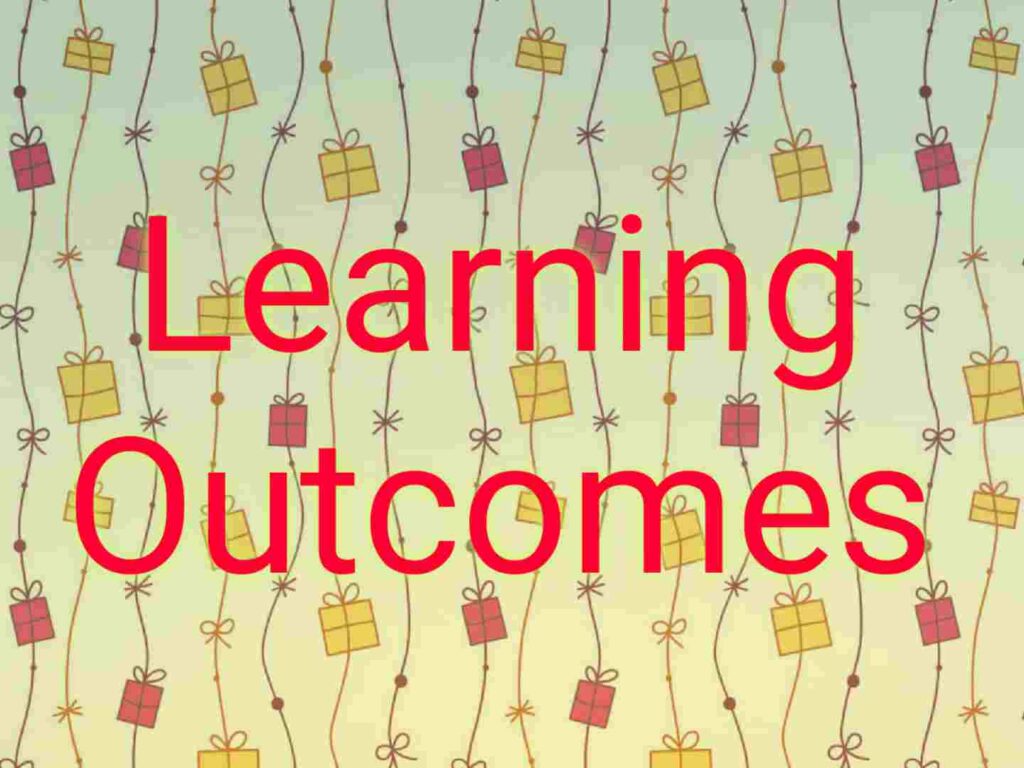LEARNING OUTCOMES FOR THE ENGLISH LANGUAGE UPPER PRIMARY STAGE
LEARNING OUTCOMES FOR THE ENGLISH LANGUAGE UPPER PRIMARY STAGE

Language learning progresses naturally with exposure to and use of language in meaningful contexts. The learner needs to notice and use language in and outside the classroom in order to become a proficient user of language.
The English language is taught and learned as a second language in varied contexts and resources for teaching-learning in terms of the proficiency of the English language teacher, materials (textbook and other supplementary materials), the English language environment in the school, and so on.
Language learning is meaningful when it is connected with the immediate environment of children. The activities/tasks in the textbook and the tasks carried out by the teacher need to take into consideration the lived-in experiences of learners. The English language learning outcomes are intended to be achieved by all children so as to enable them to be proficient users of language in real-life situations.
LEARNING OUTCOMES FOR THE ENGLISH LANGUAGE
Broadly, the goals of language learning which could be achieved include attainment of basic proficiency in the language for effective communication and the development of language for knowledge acquisition i.e. using language as a tool for learning the content subjects. However, the teacher should have the flexibility and consider the pace of learning of children well as their opportunities of learning English at home and in school.
The learning outcomes listed are not restrictive or limited; they are the launching pads for developing skills and competencies in learners of the English language in classes VI, VII, and VIII. Teachers may add activities to achieve the outcomes. Pedagogical Processes are also given along with the Learning Outcomes to emphasize the process of learning, and active participation of learners. The suggested activities/exercises are to scaffold the process of language acquisition. This is mainly to support teachers in creating learning opportunities for the learners.
The teacher should observe children for assessment when they are engaged in activities keeping in mind differently-abled children as well. Assessment should be an integral part of the teaching-learning process and not a year-end examination only.
Curricular Expectations
Children are expected to
- acquire the ability to listen and respond orally and in writing/Lip reads where necessary.
- speak about self, simple experiences; report events to peers, accurately and appropriately make connections and draw inferences.
- recite poems, dialogues: speak and write language chunks (phrases, sentences from stories, plays, speeches, etc.)
- understand the central idea and locate details in the text (familiar and unfamiliar).
- use critical/thinking faculty to read between the lines and go beyond the text.
- comprehend and use the form and functions of grammar in context.
- write coherently and with a sense of audience ( formal and informal)
- write simple messages, invitations, short paragraphs, letter (formal and informal), applications, personal diary, dialogue from story and story from a dialogue / conversation in English and in Braille
- engage in creative writing e.g. composition of poems, jokes, short stories, etc.
- develop sensitivity towards their culture and heritage, aspects of contemporary life. gender, and social inequality.